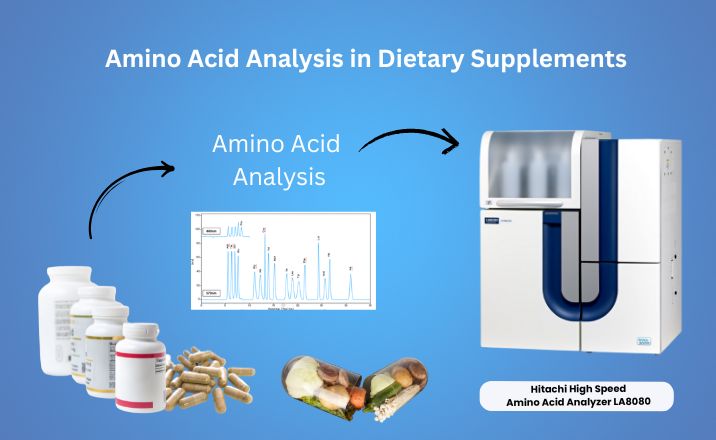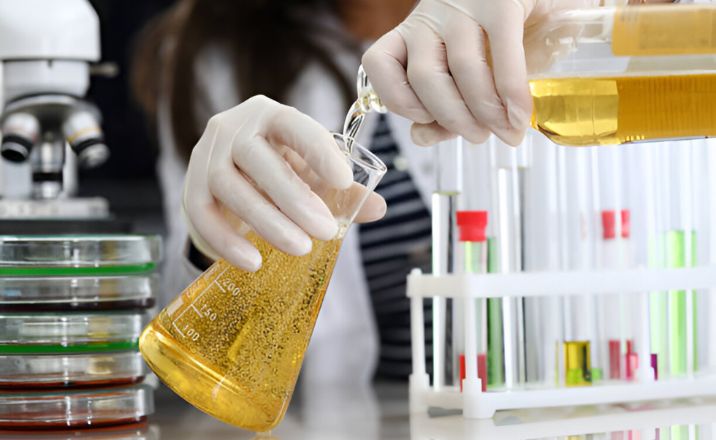The Rise of Veganism in India: Ensuring Quality through Comprehensive Vegan Food Testing

Introduction
Vegan food testing is crucial as the vegan food market in India experiences remarkable growth, driven by a collective shift towards healthier and more sustainable living. The term “vegan” was first coined in 1944 by Donald Watson, a British animal rights advocate, who sought to define a stricter form of vegetarianism that excluded all animal-derived products. Over time, veganism has evolved into a broader ethical and environmental philosophy that emphasizes reducing harm to animals, protecting the planet, and promoting human health.
This blog aims to explore the increasing popularity of veganism, the associated rise in demand for plant-based foods, and the essential role of rigorous food testing in maintaining the authenticity, safety, and quality of vegan products.
What is a Vegan Diet or Veganism?
Veganism extends beyond dietary choices to encompass a lifestyle that avoids all animal products, including those used in food, clothing, and personal care. A vegan diet consists exclusively of plant-based foods. This includes fruits, vegetables, legumes, soy products, nuts and their butters, plant-based dairy substitutes, fermented or sprouted plant foods, and whole grains. Veganism excludes all animal-derived products such as poultry, eggs, meat, dairy, and shellfish.
Veganism on the Rise
In India, the rise of veganism is increasingly evident as more consumers embrace plant-based living. The growing availability of vegan products in supermarkets, restaurants, and online platforms reflects this trend. This shift is driven by a growing awareness of animal welfare, environmental sustainability, and the health benefits associated with a plant-based diet.
As the demand for vegan food products continues to soar, the food industry faces new challenges in meeting consumer expectations. Today’s consumers are more informed and discerning, demanding transparency in the sourcing, production, and labeling of vegan products. Rigorous food testing has become indispensable for manufacturers, ensuring their products are free from animal-derived ingredients, meet safety standards, and provide the nutritional benefits that consumers expect.
Types of Testing for Vegan Foods
Vegan food testing involves a variety of analytical methods, each designed to address specific concerns. Some of the key tests include:
- Ingredient Verification: Ensuring that all ingredients in vegan products are authentically plant-based and free from animal-derived sources by employing advanced methods like DNA-based testing, including real-time PCR.
- Allergen Testing: ELISA (enzyme-linked immunosorbent assay) tests are commonly used to detect the presence of allergens such as peanuts, tree nuts, soy, wheat, and dairy.
- Microbiological Testing: This type of testing checks for the presence of harmful microorganisms such as bacteria, viruses, and fungi.
- Nutritional Analysis: Testing for nutritional content ensures that vegan products meet the claims made on their packaging. This includes testing for macronutrients (protein, fat, carbohydrates) as well as vitamins and minerals.
- Contaminant Testing: This includes testing for heavy metals, pesticides, and other harmful substances that can be present in raw materials or introduced during processing. Contaminant testing is vital for ensuring the safety and quality of vegan foods.
Regulatory Guidelines by FSSAI on Vegan Food Testing
On June 10th, 2022, the Food Safety and Standards Authority of India (FSSAI) made a noteworthy announcement in the gazette concerning vegan foods. This notification clarified that vegan food refers to any food or ingredient that is entirely free from animal-derived sources, including additives, flavorings, enzymes, carriers, and processing aids. The draft regulations also cover the general requirements for packaged vegan food products including their compliance and labelling display.
Sellers offering vegan food, whether exclusively or alongside other retail items, must ensure vegan food testing is conducted, and store and display these products in a way that clearly distinguishes them from non-vegan foods. Additionally, every package of vegan food, once approved, must display the specified logo as indicated below.

Food Safety Concerns in Vegan Food
As the demand for plant-based alternatives grows, several food safety concerns have emerged for vegan products. Addressing these challenges is crucial for ensuring the quality and safety of vegan foods. Here are the key food safety concerns associated with vegan food:
- Microbial Growth: Plant-based meat alternatives often have near-neutral pH levels combined with high protein and moisture content. These conditions can create an environment conducive to microbial growth, which poses a risk to food safety.
- Cross-Contamination: There is a significant risk of cross-contamination from animal-derived ingredients, especially in production facilities that handle both plant-based and animal-based foods. This can lead to the unintended presence of animal-derived allergens in vegan products.
- Off-Flavours: Some plant-based ingredients can introduce undesirable flavors into products. For instance, soybeans might impart grassy or beany notes, while certain plant compounds can cause bitter or astringent tastes.
- Shelf Life: Establishing the shelf life of plant-based proteins can be challenging. Variations in formulation and processing methods require thorough testing to determine how long these products remain safe and effective.
- Presence of Contaminants: Plant-based ingredients, including soy isolates, are at risk of contamination from heavy metals, pesticides, and residual solvents like hexane. Ensuring the safety of these ingredients through rigorous testing is essential.
Food testing plays a crucial role in identifying and mitigating these risks. Advanced testing methods can detect even trace amounts of non-vegan substances, ensuring the authenticity of the product. Microbiological testing is used to identify potential pathogens, while chemical analysis can detect harmful residues or contaminants.
Partner with Envirocare Labs for Vegan Food Testing
At Envirocare Labs, we are dedicated to supporting manufacturers in overcoming the challenges of vegan food production through our comprehensive and reliable vegan food testing services. Our offerings include advanced techniques such as real-time PCR for ingredient verification, ELISA for allergen detection, microbiological testing, nutritional analysis, contaminant testing, and more. Partner with us to ensure your vegan products meet the highest standards of safety, quality, and compliance.
Conclusion
As the vegan food market in India continues to expand, the importance of rigorous food testing cannot be overstated. Testing ensures that vegan products are safe, authentic, and nutritionally balanced, meeting the high standards expected by consumers and regulators alike. Looking ahead, the future of vegan food testing in India will likely see advancements in technology, making testing methods more precise and efficient.
References:
- https://www.fssai.gov.in/upload/notifications/2022/06/62ac3f9dba33cGazette_Notification_Vegan_Food_17_06_2022.pdf
- https://www.fssai.gov.in/upload/uploadfiles/files/Guidelines%20dated%2024th_February(2).pdf






